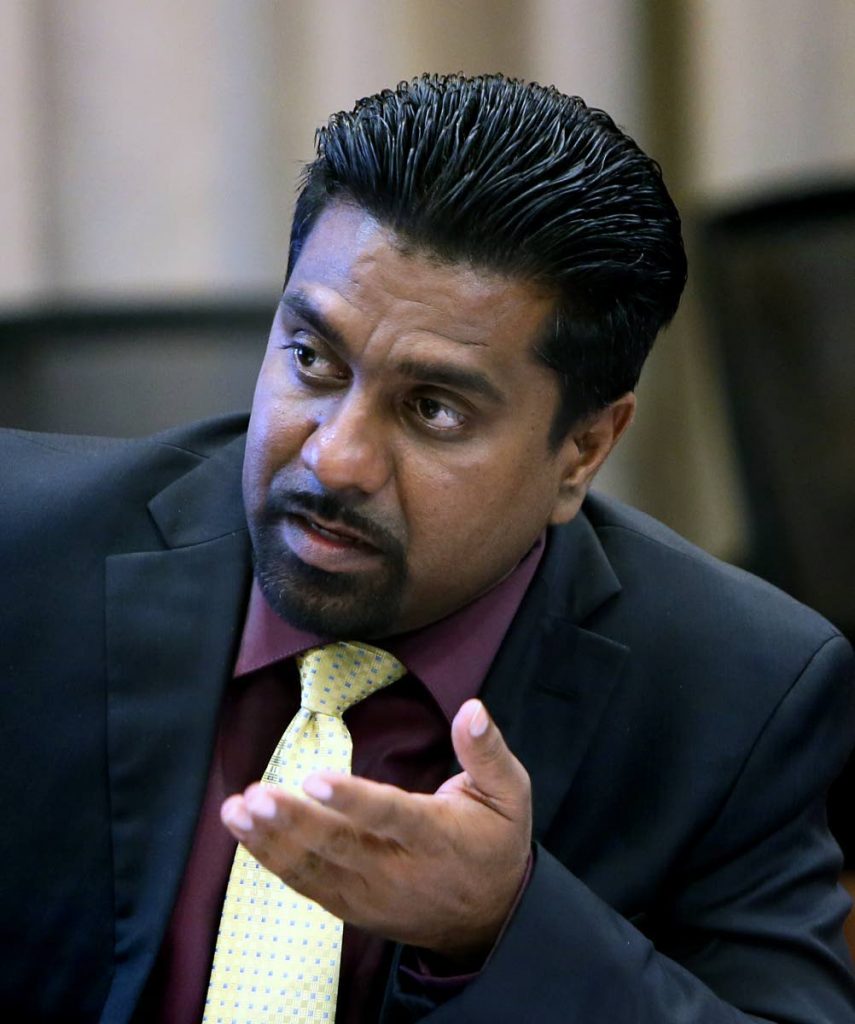Ramdeen: Judiciary at darkest point

AMENDMENTS to be made in the Evidence (Amendment) Bill, 2019 will not work unless the judiciary is fixed. This from Opposition UNC Senator Gerald Ramdeen who, as he contributed to debate last week in the Senate, opined that the judiciary was at its darkest point in TT jurisprudence history.
During his contribution, he said the Evidence Act seemed to be driven by the office of the Director of Public Prosecutions (DPP), the engine room of the prosecutorial process.
Attorney General Faris Al-Rawi said the Office of the AG had not received any feedback on consultations with the police or the Office of the DPP.
He said, “I don’t think that any piece of legislation that requires such an important institution to drive the legislation, that we could sit here comfortably knowing that the Cabinet has not had a view from the DPP in relation to this particular piece of legislation.
“Perfection is the enemy of progress, but not getting it right is the enemy of both perfection and progress. We can’t get it right unless the person who is in charge of (this is) telling us this will do what we want it to do.’
Ramdeen said with regard to the legislation, be it ID parade, oral confession, witness anonymity – it was the judiciary who has to implement it.
“We will be burying our heads deeply in the sand, which I am not prepared to do, to not analyse whether we are not putting the cart before the horse, where at this point in time you bring a piece of legislation that gives for the first time very, very serious powers into the hands of the judiciary – the magistracy, the Masters, the High Court judges. Can we honestly sit here and put our heads into the sand and not realise that at this point in time, the judiciary that has to implement these powers that are being given by this piece of legislation is broken? It is at the darkest in the history of our country.”
He said the workers at the Hall of Justice were praying on the steps of the court for justice for the first time.
“We can bring all the legislation we want, we could bring all the amendments to the Evidence Act, to the Police Service Act, you could bring judge alone, plea bargaining: at the end of the day, all of this that the Government puts before us is not going to work unless we get the judiciary working again.”
Ramdeen said with all the powers that were being given to the judiciary, it could not work without the court staff. He said a court did not incorporate itself with a judge alone, but worked with a staff, and justice could not be dispensed without those people who “come to court every day, leave their families at home.
“Today those people’s lives, their livelihood, are at risk because of things that have been done right here. In the Criminal Division Bill which has been passed, we stood right here and I told the Senate that the powers that were going to be given to the court executive administrator in that legislation were going to bring the judiciary down, and so said, so done. Unfortunately that has come to pass.
“You have a senior judge of the High Court indicating that the court executive administrator must know her place and respect the judges of the High Court.” He was referring to Justice Carol Gobin’s letter to court administrator Christie Morris-Alleyne.


Comments
"Ramdeen: Judiciary at darkest point"